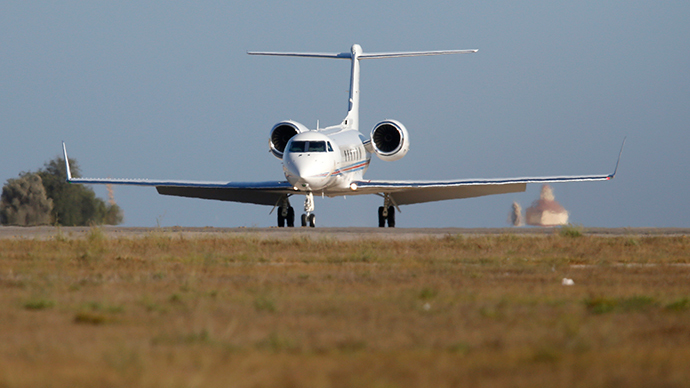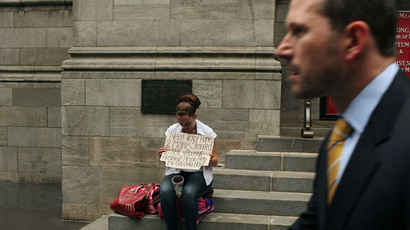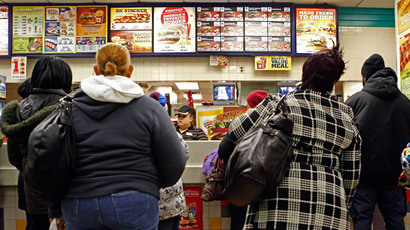Rich being left behind – by super-rich

The wealth gap is widening in the United States, but it’s not just the middle class and poor that are struggling. It turns out the rich are having a hard time keeping up with the changing luxury landscape, and the super-rich are to blame.
Of course, the rich aren’t exactly struggling in today’s economy. However, the rate at which profits have recovered for the upper echelons of the wealthy since the 2008 financial crisis has been extraordinary, especially compared to the buying power of those below them.
According to a New York Times report, wealth accumulation for the top one-hundredth of the one percent (defined as billionaires and nine-figure millionaires) is growing significantly faster than it is for the rich, or your “average” millionaire.
READ MORE:Billionaires in the world double since global crisis - Oxfam
The divide has become particularly noticeable as people study the buying habits of the wealthy. Philip Rushton, president of private jet brokerage company Aviatrade, noted that the biggest, most expensive private jets are flying off the runway at even higher prices than normal. Less expensive jets – which usually sell at around the same pace as the larger ones – aren’t taking off at all as stockpiles grow.
“The real demand is at the very top,” he told the Times. “The big guys, the billionaires, have plenty of money, and they’re buying. But the middle and lower end has been much slower to recover from the crisis.”

This scenario is not just playing out in the private jet market, either. Demand for even more expensive jewelry, art, and yachts is rising – and it is in large part due to the fact that the top 0.01 percent have seen their wealth grow about by eight percent a year between 1986 to 2012. For comparison, the top one percent typically saw growth of just under four percent a year.
“The really top guys are insulated from fluctuations in the economy,” Rushton added. “They’ve always got money, and they have even more today.”
READ MORE:Location, location, location: $1 million parking spaces for sale in NYC
The report dovetails with a study released earlier this year by Oxfam, which found that since the Great Recession began, the recovery has seen the rich recover their losses much faster than average Americans. In fact, the one percent captured 95 percent of post-recession growth (since 2009), while 90 percent of Americans suffered worsening economic conditions.
Buoyed by gains in the stock market, the wealthiest five percent of Americans had 24 times the wealth of the average household in 2013 – up significantly from 16.5 times as much in 2007, the University of Michigan found in its own report this summer. The home ownership rate in the United States, meanwhile, has dropped by about four percent compared to 2004. Close to 20 percent of homeowners with a mortgage still owe more on their homes than they are worth.














